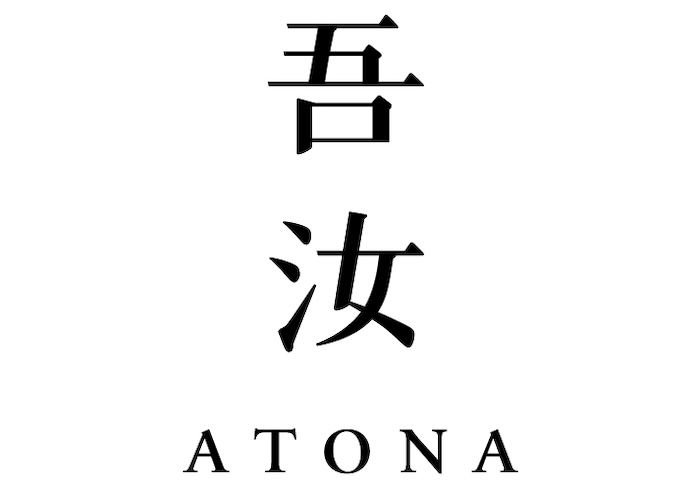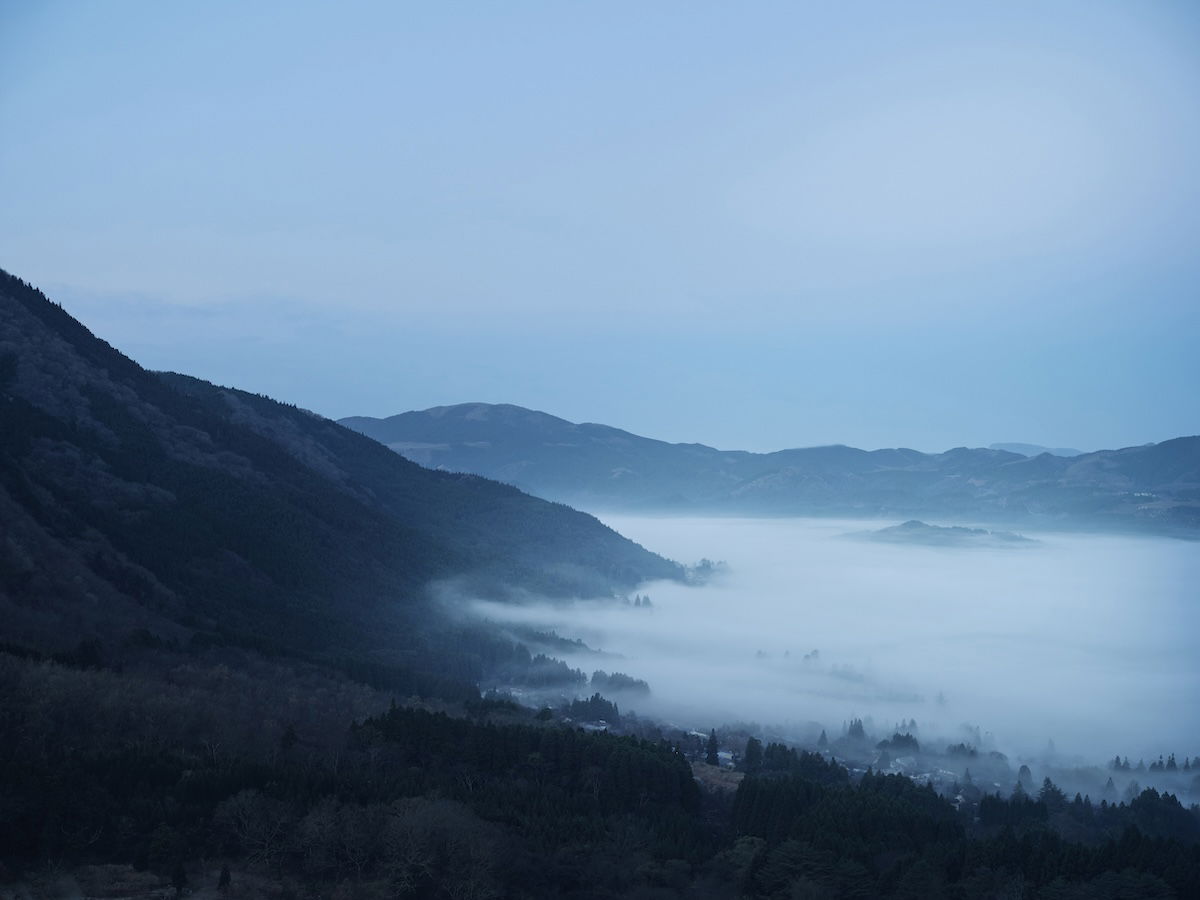In 2022, Hyatt announced plans to launch a new hotel brand in Japan. The company has now revealed more details, including when and where we can expect the first properties to open. This is a concept I’m excited about.
In this post:
Hyatt launches Japanese ryokan joint venture
Hyatt and Kiraku have entered into a strategic joint venture, which will see the launch of the ATONA brand. This will be a collection of modern-style hot spring ryokans (Japanese-style inns) in Japan, targeting global travelers.

“ATONA” is described as an expression of deep connection, a combination of two old Japanese words that mean “me and you.” The first properties are expected to open in 2026, and will be located in Hakone, Yakushima, and Yufu.
Hyatt and Kiraku will each leverage their strengths to develop the new offering, with the latter being described as a Japanese company dedicated to preserving valuable assets for future generations. The ATONA brand will be managed independently by a team of hospitality experts who have an understanding of both Japanese culture and international hotel standards.
Hyatt and Kiraku have also announced the first close of the Atona Impact Fund, which is a real estate fund that will invest in ATONA ryokan development sites. This secures an initial funding of 10 billion yen (around 64 million US dollars). The fund is aiming for a final target of 20 billion yen (around 128 million US dollars).
Here’s how the ATONA concept is described:
The ATONA brand will express the unique charm of each region’s architecture, design, cuisine, activities, and hospitality through the ryokan experience. Centered around the onsen (hot spring), a treasured part of Japanese culture, the ryokans built by the joint venture will feature a modernized style that will serve as the base of each guest’s journey in Japan. Set amongst breathtaking landscapes, each will offer new experiences and discoveries both within and beyond the ryokan that are special to its locale.
The ATONA brand experience will offer bespoke experiences and warm Japanese hospitality away from the bustle of everyday life, inspiring guests to feel the deep wisdom hidden within nature and a peaceful place to reconnect with oneself.

This hotel concept sounds like it could be great
The details about ATONA are still fairly limited, but the concept sounds exciting to me. All too often we see the major hotel groups just launch the same cookie-cutter concepts, while this is something new, at least for one of the “big players.” A few thoughts and questions:
- Even though this is a joint venture, it sounds to me like these hotels will fully be branded as Hyatts, which is to say that I’d expect full World of Hyatt participation, etc.; after all, one of the things that Hyatt brings to the table here is the international customer base
- It’s not entirely clear how premium this brand will be, and where it will fall in Hyatt’s portfolio; will these be upscale, luxury, or what?
- It’s emphasized how this brand is targeting “global travelers,” so I suspect this will be a bit watered down compared to the traditional ryokan experience; that’s not necessarily a bad thing, since it means that maybe the beds and furniture will be comfortable (by international standards), and maybe the experience won’t be that rigid (as it can sometimes be in a ryokan)
- For me personally, this is the most exciting new brand concept that Hyatt has unveiled in years; to me this has more appeal than Hyatt’s entire multi-billion dollar Apple Leisure Group acquisition

Bottom line
ATONA is Hyatt’s newest hotel brand, and it will consist of a collection of modern-style hot spring ryokans. The first properties are expected to open in 2026, and will be located in Hakone, Yakushima, and Yufu. I’m excited to learn more, as exact property details remain limited.
What do you make of Hyatt’s new ATONA concept?





The Aman Tokyo folks just told me Aman has purchased land to build an Aman property in Hakone for 2027 or 28, should be great, I love hakone.
Where in Hakone, though, is the question. If it's far off the Hakonetozan Line and local bus routes, it will have limited appeal to foreign tourists, most of whom aren't amenable to renting cars.
I would expect these to be positioned fully in the luxury segment. If not, don’t see how a 30-50 key rural property with the anticipated amenities and required staffing (including on site restaurant) would work with the Hyatt franchise and loyalty program fees. And given room rates at western affiliated chain hotels in Japan these days (where the aloft, AC, Indigo and Hyatt House in Tokyo are frequently easily USD 500+ a night), I bet...
I would expect these to be positioned fully in the luxury segment. If not, don’t see how a 30-50 key rural property with the anticipated amenities and required staffing (including on site restaurant) would work with the Hyatt franchise and loyalty program fees. And given room rates at western affiliated chain hotels in Japan these days (where the aloft, AC, Indigo and Hyatt House in Tokyo are frequently easily USD 500+ a night), I bet room rates will be at least USD 1,000 a night. And don’t expect much WOH award availability with such few rooms.
"Ryokan brand" — now there's an oxymoron. Tell me you don't understand what a ryokan is (or should be) without telling me directly.
I see what you mean, but it is like excluding boutique hotels to becoming a brand. I could see for instance a ryokan replicated in various villages, the same as Hoshinoya does with their ryokans.
I was thinking the same thing. I'm sure they'll be nice Japanese- flavor luxury spa hotels, but the whole point of a ryokan is to be a truly local and authentic experience; not a branded chain. Different strokes for different folks though - the real ryokans will still be there
I get that the concept is cute and authentic and all, but I just do not like it. I want a regular hotel room and for hundreds a night, I am not sleeping on the floor on a futon. My college days are over.
Au contraire, the sleep you will get on a proper Japanese futon is far superior to even the best Western-style beds in the world.
Having slept on both I'm gonna say Western beds are better for me. Guess it depends on how you were raised and what your preferences are
Strange choice of name. In Spanish, “atona” means a female sheep that raises a lamb of another mother. With an accent on the a, it would mean “unstressed” or “toneless” in Spanish or Italian — basically, “atonal.”
In Japanese it means the expression of deep connection. Given this is a domestic Japanese brand it shouldn't be confusing for global travellers as I'm sure the promotion of the inns will explain the meaning.
I mean, if it isn't in line with what a ryokan "should" be, it might be the most amusing unintended multlingual pun the industry has seen in a while.